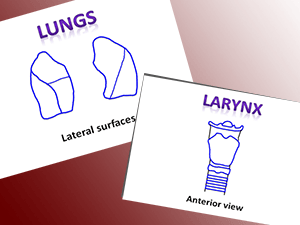TAPP APP now available! (2 min)
Introduction to Paul Krieger (2 min)
Contour drawing for anatomy with Paul Krieger (19 min)
Change to a biweekly podcast schedule (1 min)
If you cannot see or activate the audio player click here.
Follow The A&P Professor on Twitter, Facebook, Blogger, Nuzzel, Tumblr, or Instagram!
Jean Fernel once wrote, "Anatomy is to physiology as geography is to history. It describes the theater of events."
(0:44) This episode announces the availability of the dedicated app for this podcast--the TAPPradio app or TAPP APP. Kevin mentions the Android version, but after production, the Apple iOS app also became available. The app will provide some bonus materials and will usually have episodes available about 6 hours before they are released to other channels. It's the easiest way to keep up with this podcast!

(2:30) Paul Krieger of Grand Rapids Community College is a long-time professor and the author of Morton Publishing's Visual Analogy Guide series. Kevin and Paul have been friends and collaborators for over 15 years.
- Paul Krieger bio (Paul's LinkedIn profile)
- Visual Analogy Guides (catalog of Krieger's books)
- HAPS Institute (website for HAPS-I program)

(6:10) In an interview with Kevin, Paul Krieger discusses a teaching experiment he is trying with his community college students that involves drawing as a pre-lab activity. Contour drawing, or outlining, organs can help students get a good sense of the general structure of organs they'll see during the lab activity. Hand labeling the sketches adds additional learning opportunities. Paul describes his method for moving students slowly and simply through a series of easy steps using PowerPoint slides.
- Sample slide file: Respiratory Structures (contour line drawing activity)
(22:26) The summer break is a great time to switch to a slower pace for this podcast. After a series of weekly episodes, TAPP Radio now shifts to a twice-a-month goal for new episodes. Thanks for your support!
If the hyperlinks here are not active, go to TAPPradio.org to find the episode page.
- More details at the episode page.
- Transcript available at the script page.
- Listen to any episode on your Alexa device.
Amazon referrals help defray podcasting expenses.
Click here to listen to this episode—or access the detailed notes and transcript.

No comments:
Post a Comment